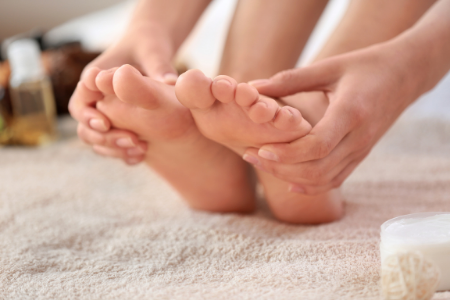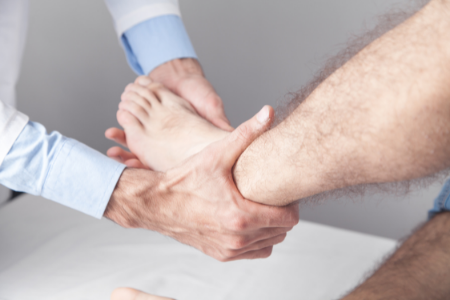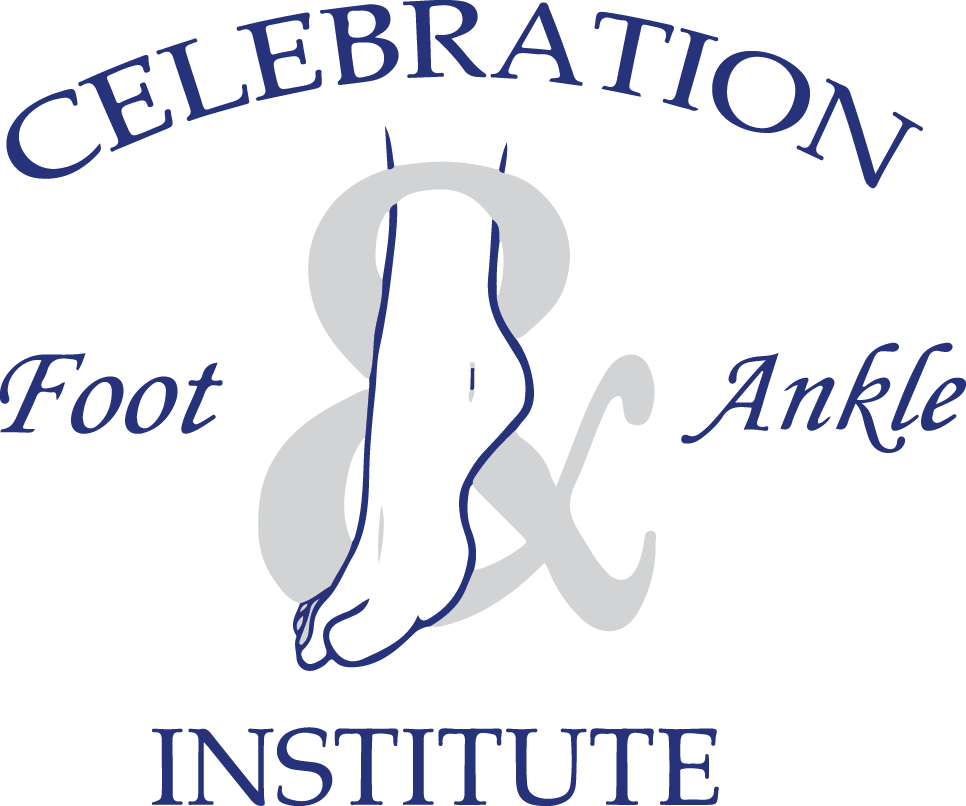 What is rheumatoid arthritis?
What is rheumatoid arthritis?- How common is rheumatoid arthritis?
- What causes rheumatoid arthritis?
- What should I do if rheumatoid arthritis runs in my family?
- How can a podiatrist help my rheumatoid arthritis?
If you’re experiencing the joint stiffness and swelling commonly associated with rheumatoid arthritis, you may be wondering what led you to develop the disease. If you inherited it from a past generations, how likely is it that your diagnosis also puts your children and grandchildren at risk?
This blog will help you understand the genetic and environmental factors associated with rheumatoid arthritis, and how a podiatrist can help you fight its often debilitating symptoms.
What Is Rheumatoid Arthritis?
Rheumatoid arthritis, more commonly known as RA, is an autoimmune disease that causes pain, inflammation, stiffness, and swelling in the body, but especially in the joints. The disease targets the synovial tissues within the joints themselves. The smaller joints of the feet and hands often become particularly troublesome, but the disease can also affect the big joints of the hips, knees, and shoulders.
If you suffer from an autoimmune disease, it’s as if the body begins to fight itself, literally, as the immune system decides your own tissues are foreign. In the same way that your immune system would fight back against a cold or flu, the body begins attacking your joints.
RA affects everyone differently; however, it is a systemic disease that can spread throughout the entire body. The disease can attack your organs, including the heart and lungs, or go after cartilage, ligaments, and muscles. Because it causes chronic pain and inflammation, RA can lead to debilitating and permanent health issues.
How Common Is Rheumatoid Arthritis?
 Today there are 1.3 million people in the United States struggling with RA. The global incidence of the disease is about one to two percent of the world’s population. While anyone can develop RA, as you age, your chances of coming down with the disease increases, and if you’re a woman, you have a two to three times even greater chance.
Today there are 1.3 million people in the United States struggling with RA. The global incidence of the disease is about one to two percent of the world’s population. While anyone can develop RA, as you age, your chances of coming down with the disease increases, and if you’re a woman, you have a two to three times even greater chance.
Rheumatoid arthritis is the second most common type of arthritis in the United States, following closely behind osteoarthritis. Osteoarthritis inflames the cartilage at the end of your bones, breaking down the joint over time, whereas RA causes the immune system to go haywire, attacking the lining of the joint first, and then the full joint itself.
There are several other types of arthritis, including gout, psoriatic arthritis, septic arthritis, and more. Depending on the type of arthritis, you may experience:
- Decreased range of motion
- Fatigue
- Pain
- Redness
- Stiffness
- Swelling
With the rheumatoid form of the disease, you may have noticed warmth or swelling in your toes or fingers. This may come and go so at first you think you just overdid it. We call these “RA flare-ups” and they can last just a few days or even weeks and then dissipate as if nothing is wrong. Over time, however, the disease will move into the larger joints.
What Causes Rheumatoid Arthritis?
 We are not entirely sure what causes RA to occur. However, scientists believe there are three primary causes of rheumatoid arthritis:
We are not entirely sure what causes RA to occur. However, scientists believe there are three primary causes of rheumatoid arthritis:
- Hereditary, meaning, if someone in your family has RA, you will be more likely to develop it
- Environmental factors, such as exposure to certain viruses, dusts, chemicals, or other actors
- Lifestyle factors, such as smoking and obesity, can contribute to the disease
The reality is we don’t yet know what combination of these three factors cause RA. While we know there are several genes that could play a role in immune function, more research needs to occur to be certain.
What Should I Do If Rheumatoid Arthritis Runs in My Family?
RA does run in families but that’s not the only factor that causes you to get the disease. It seems to flare up as a result of both inherited factors and environmental factors.
Since we haven’t yet identified the gene responsible for RA, that leaves you to focus on prevention of the disease by practicing lifestyle choices for better health. For example, you should:
- Get regular dental checkups, as gum disease is connected to RA
- Manage your weight by working out and eating healthy
- Quit smoking as soon as possible
If your family history includes other types of autoimmune disorders apart from RA, this could also put you at greater risk of developing RA. These autoimmune disorders are:
- Inflammatory bowel disease
- Lupus
- Scleroderma
- Thyroid disease
Non-autoimmune disorders such as sleep apnea, autism, and pulmonary fibrosis could also increase your risk of developing RA. With that said, we don’t know exactly why this is the case.
How Can a Podiatrist Help My Rheumatoid Arthritis?
 Your podiatrist is here to help you with foot pain. If you have rheumatoid arthritis, the chances are high that at some point the joints of your feet will be affected. More than 90% of people with RA experience symptoms in their feet. Interestingly, RA is a symmetrical disease; if one foot is affected, both will be.
Your podiatrist is here to help you with foot pain. If you have rheumatoid arthritis, the chances are high that at some point the joints of your feet will be affected. More than 90% of people with RA experience symptoms in their feet. Interestingly, RA is a symmetrical disease; if one foot is affected, both will be.
Having RA in your feet is particularly uncomfortable. After all, your feet are what bear your weight for life’s everyday activities. RA inflames the ankle and toe joints, as well as the ligaments and tissues supporting these important structures. Weakened ligaments cause hammer to or other foot deformities. The bones of your feet can even fracture and collapse.
Your podiatrist can identify, diagnose, and treat rheumatoid arthritis with the goal of reducing pain, increasing the function of the foot, and restoring your mobility. The doctor has several treatments available to help with the disease, including:
- Assessment of your footwear choices
- Management of wounds and ulcers
- Medications to help with pain management
- Palliative foot care to help ease your discomfort
- Prescribing special orthotics for the feet
- Surgical options
The Celebration Foot & Ankle Institute is dedicated to helping you keep a high quality of life after an RA diagnosis. For more information or to receive a consultation with our specialists, contact us today.


